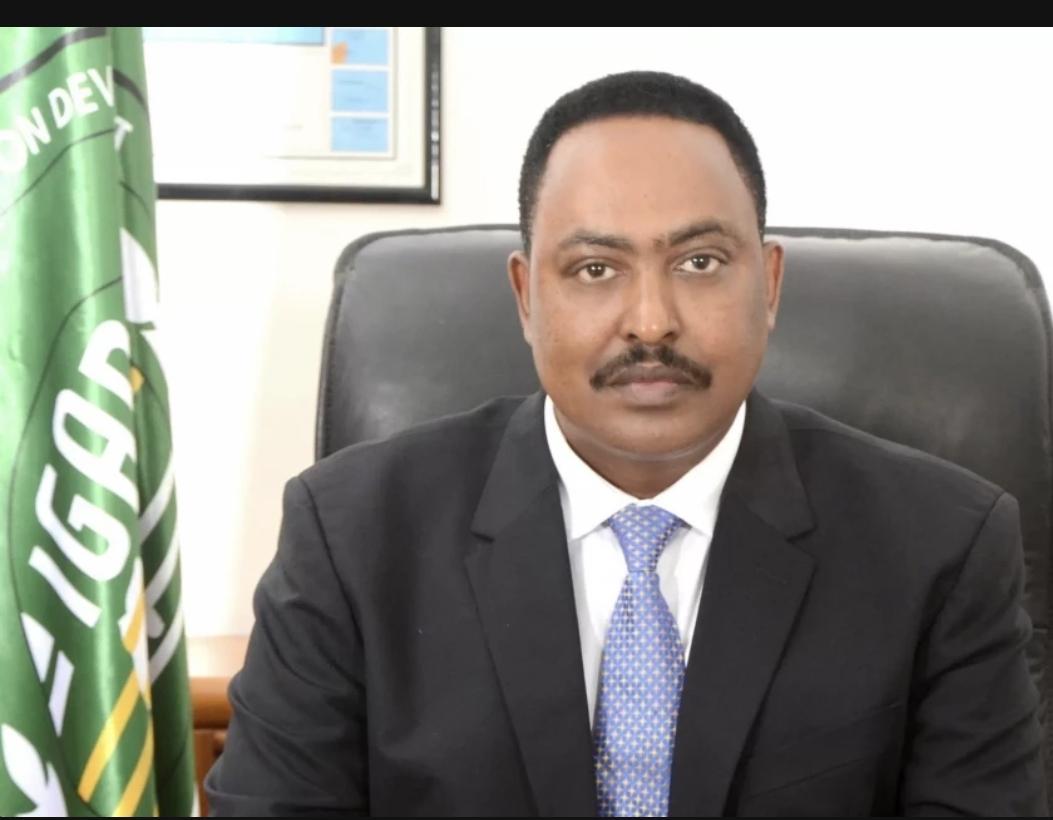
The Inter-Governmental Authority on Development (IGAD) has decried the prolonged drought spells that have ravaged the region and affected millions of people and livestock.
In his state of the region address, IGAD Executive Secretary Dr Workneh Gebeyehu said the 2021-20122 period was the most challenging in the history of IGAD.
"...it was one of the hottest, driest and most conflict-affected periods for our region in recent memory. These extreme changes in weather are of grave concern to the IGAD region. The drought affected over 10% of our population, with 36.1 million people facing heightened levels of food insecurity," said Dr Gebeyehu.
The drought situation also wiped out an estimated 4.2 million heads of livestock, adversely affecting the livelihoods of pastoralist communities and crippling them economically. The IGAD region hosts almost 50% of livestock in Sub-Saharan Africa and livestock accounts for almost 15% of the region’s gross domestic product (GDP).
"In response to these challenges of extreme weather, livestock losses and resultant food insecurity, IGAD proposes in 2023 to undertake a number of pro-active initiatives beginning with convening a regional climate outlook forum, 19 days from now on February 20," added Dr Gebeyehu.
The forum will be part of efforts to enhance climate awareness in the region, the continent and enhance the ability of IGAD member states to collect and process data for disaster forecasting, and ultimately reduce the gap between early warning and early action.
"The prolonged drought also triggered large-scale population displacement with close to 2 million people becoming internally displaced and increasing the refugee burden in the region because approximately 40,000 of our brothers and sisters sought asylum from hunger in neighbouring countries in 2022," he said.
In the last two years, according to statistics from IGAD, food prices in the region increased by an average of 55.6% compelling the neediest people to spend over 90% of their earnings on food alone. This dire situation prompted the organization's secretariat to review the region’s food security and nutrition response strategy and align it with the current realities.
"As part of this initiative, IGAD will be investing heavily in food security data. A starting point will be a region-wide census of livestock in order to have a clear picture of the situation after the drought. The intention here is to support member states to drive evidence-based re-stocking programs as part of post-drought economic recovery for drought-affected pastoralist communities, inform a regional livestock fodder security strategy based on scientifically-derived feed balances and ultimately establish regional strategic food and fodder reserves," said the Executive Secretary.
Dr Gebeyehu also gave an update on peace efforts in South Sudan, Ethiopia, Somalia and Sudan. He appealed to all the involved parties in the negotiations to embrace the spirit of dialogue.
"In 2023, IGAD is determined to ride the 'wind of peace' that has been sweeping across our region and promises to continue working tirelessly to resolve the remaining differences in the region. Peace and the ability to address and resolve internal tensions is perhaps the greatest defence that states and nations can have in these times of extreme political polarisation and internal strife. For the IGAD region, the surest path to peace is to deliver progress and prosperity through regional integration and unity," said Dr Gebeyehu.
In 2021 and 2022, five out of seven IGAD member states - Uganda, Djibouti, Ethiopia, Somalia and Kenya - held elections which Dr Gebeyehu termed as peaceful and a sign of maturity in democracy as well as a step in fostering peace and security in the region.
"These peaceful elections demonstrate the growing regional commitment to the democratic process and the principles of constitutionalism. Let us agree that elections are a very significant component of peace and security but nevertheless, they remain only one of the many contributing elements to the regional stability equation," he said.
During the state of IGAD regional summit, a panel of eminent personalities was unveiled among them legendary athletes Catherine Ndereba of Kenya, Deratu Tulu from Ethiopia and Council of Elders chairman Dr John Seii.
𝗦𝗲𝗺𝗮𝘀𝗼𝗰𝗶𝗮𝗹 𝗶𝘀 𝘄𝗵𝗲𝗿𝗲 𝗿𝗲𝗮𝗹 𝗽𝗲𝗼𝗽𝗹𝗲 𝗰𝗼𝗻𝗻𝗲𝗰𝘁, 𝗴𝗿𝗼𝘄, 𝗮𝗻𝗱 𝗯𝗲𝗹𝗼𝗻𝗴. We’re more than just a social platform — from jobs and blogs to events and daily chats, we bring people and ideas together in one simple, meaningful space.